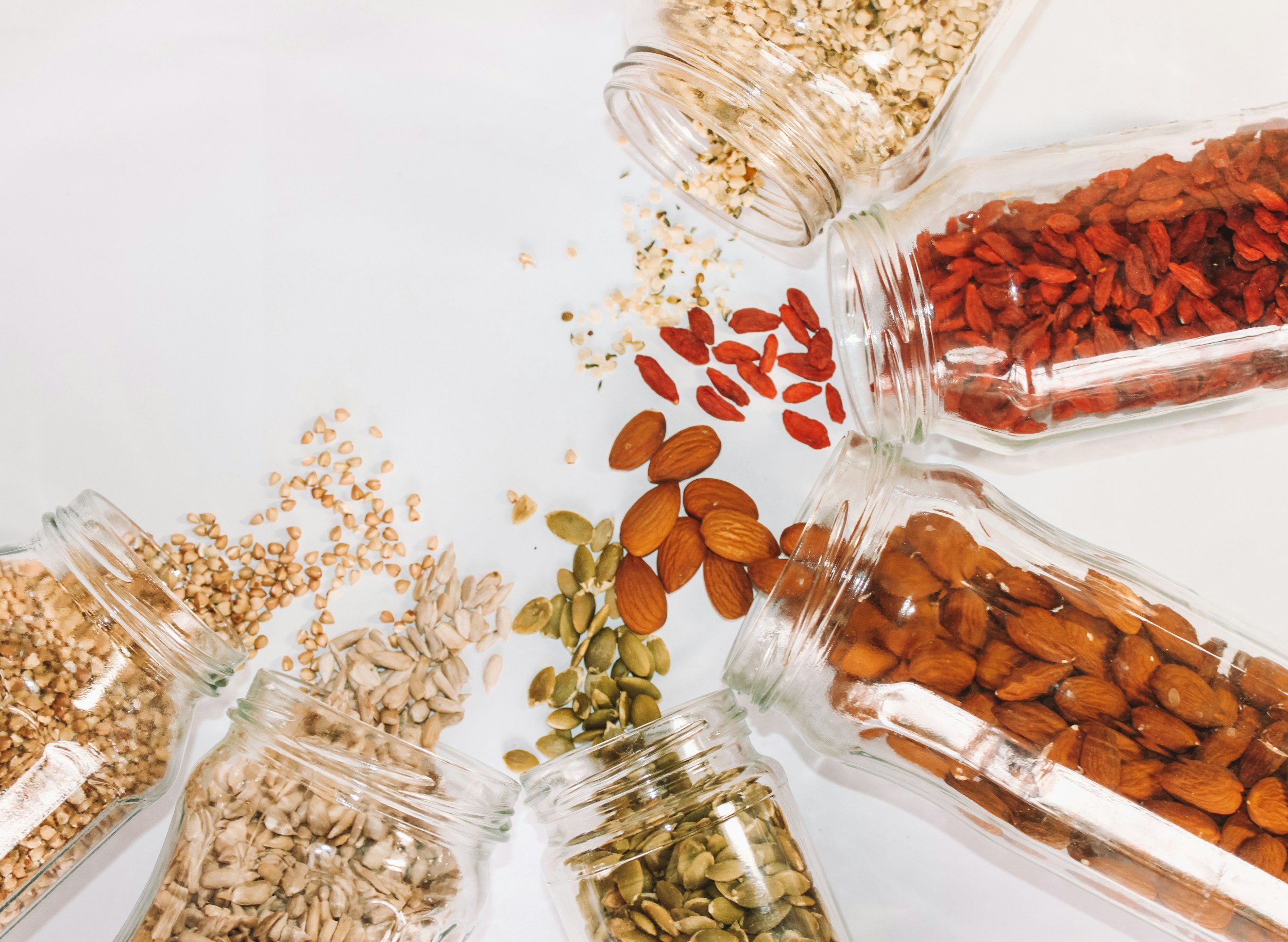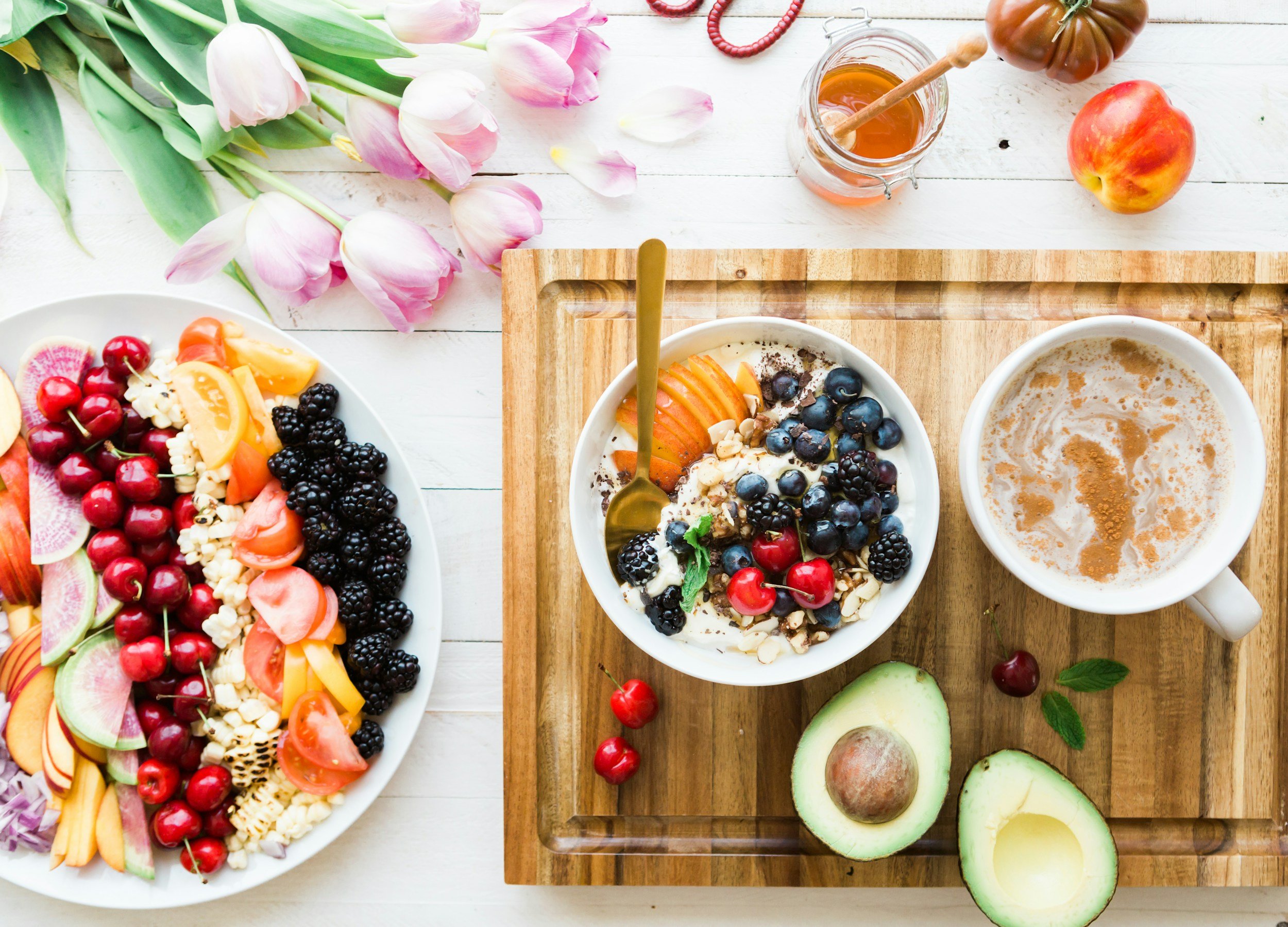How to Support Your Immunity with Food
Supporting your immune system through diet is essential for maintaining good health and fending off illnesses. Discover how incorporating nutrient-rich foods like citrus fruits, mushrooms, and probiotics can strengthen your body’s natural defenses and keep you resilient year-round.
In the quest for better health and wellness, supporting our immune system is paramount. A robust immune system is our body's natural defense against infections and illnesses, and while genetics and lifestyle play a role, what we eat can significantly influence its strength and efficiency. This blog will delve into the science of how certain foods can bolster your immune system, providing practical tips to integrate them into your daily diet.
Understanding the Immune System
The immune system is a complex network of cells, tissues, and organs that work together to defend the body against harmful invaders like bacteria, viruses, and toxins. It comprises two main components:
Innate Immunity: The first line of defense, which includes barriers like skin and mucous membranes, and internal defenses like white blood cells that attack and destroy invaders.
Adaptive Immunity: The second line of defense, which adapts to specific threats and retains a memory of them for faster response in future encounters.
To keep this intricate system functioning optimally, it requires proper nutrition. Let’s explore how different nutrients and foods play a role in supporting immune health.
key nutritents for immune health
Vitamin C
Vitamin C is perhaps the most well-known immune-boosting nutrient. It enhances the action of white blood cells, which are vital in fighting infections. Additionally, vitamin C is an antioxidant, protecting cells from damage by free radicals.
Foods Rich in Vitamin C:
Kakadu plum, camu-camu, and acerola
Citrus fruits like oranges, lemons, and grapefruits
Strawberries, black currants, guava, kiwi fruit
Broccoli, capsicums
Vitamin D
Vitamin D is crucial for immune function. It enhances the pathogen-fighting effects of monocytes and macrophages — white blood cells that are important parts of your immune defense — and decreases inflammation.
Sources of Vitamin D:
Sunlight exposure
Fatty fish (e.g. salmon, sardines, mackerel, cod liver oil)
Egg yolks, butter
Mushrooms exposed to sunlight
Fortified foods like milk and cereals
Supplements, if needed, especially in regions with limited sunlight
Zinc
Zinc is essential for immune cell function and signaling. A deficiency can lead to a weakened immune response. Zinc helps maintain the integrity of skin and mucous membranes, and it’s crucial for the development and function of immune cells.
Zinc-Rich Foods:
Meat, shellfish, and seafood
Legumes like chickpeas, lentils, and beans
Sunflower and pumpkin seeds
Dairy products
Whole grains
Probiotics and Prebiotics
Gut health plays a significant role in immunity. Probiotics are beneficial bacteria that support gut health, while prebiotics are fibres that feed these bacteria. A healthy gut microbiome can enhance immune responses and reduce the risk of infections.
Sources of Probiotics:
Yogurt
Kefir
Sauerkraut
Kimchi
Miso
Sources of Prebiotics:
Garlic and onions
Mushrooms, asparagus, leafy greens, and root vegetables
Bananas, apples, pears, and citrus fruits
Whole grains and legumes
Antioxidants
Antioxidants protect the body from oxidative stress, which can weaken the immune system. Vitamins like A, C, and E, and minerals like selenium, have strong antioxidant properties.
Antioxidant-Rich Foods:
Berries (e.g. blueberries, strawberries, raspberries)
Brightly coloured fruits and vegetables
Dark chocolate
Nuts and seeds
Green tea
Building an Immune-Boosting Diet
Incorporate a Rainbow of Fruits and Vegetables
Aim for a colourful plate at every meal. Different colours often represent different nutrients and antioxidants that are beneficial to your immune health. For instance, red capsicums are high in vitamin C, while dark leafy greens are rich in vitamin A and folate.
Opt for Whole Foods Over Processed Foods
Processed foods often lack essential nutrients and can contain unhealthy fats, sugars, and preservatives that can dampen immune function. Instead, choose wholefoods that provide a wide array of nutrients.
Stay Hydrated
Water is essential for overall health, including the immune system. It helps carry oxygen to your cells and removes toxins from the body. Herbal teas, such as ginger or turmeric tea, can also provide additional immune-boosting properties.
Include Healthy Fats
Healthy fats, like those found in olive oil, avocados, and nuts, have anti-inflammatory properties that can boost your immune response. Omega-3 fatty acids, found in fatty fish, are particularly beneficial for reducing inflammation.
Mind Your Protein Intake
Protein is vital for building and repairing tissues, and it plays a crucial role in immune function. Include a variety of protein sources in your diet, such as lean meats, fish, eggs, legumes, and nuts.
Limit Sugar and Refined Carbs
Excessive sugar and refined carbs can lead to inflammation and impair immune function. Try to limit your intake of sugary snacks and drinks and choose whole grains over refined grains.
Lifestyle tips to complement your diet
Get Regular Exercise
Moderate exercise can give your immune system a boost and improve overall health. Activities like walking, cycling, and yoga are great options.
Prioritise Sleep
Sleep is crucial for maintaining a healthy immune system. Aim for 7-9 hours of quality sleep each night to allow your body to repair and regenerate.
Manage Stress
Chronic stress can weaken the immune system. Incorporate stress-reducing activities into your routine, such as meditation, deep breathing exercises, or hobbies you enjoy.
Practice Good Hygiene
Regular handwashing, proper food handling, and avoiding close contact with sick individuals can help prevent infections and support your immune system.
summary
Supporting your immune system with food involves a balanced, nutrient-rich diet filled with a variety of fruits, vegetables, whole grains, proteins, and healthy fats. By making conscious food choices and maintaining a healthy lifestyle, you can strengthen your body's natural defenses and enjoy better overall health. Remember, there’s no magic food or supplement that guarantees immunity against diseases, but a consistent and balanced approach to nutrition can significantly enhance your body's ability to fend off illness.
By focusing on these dietary and lifestyle principles, you can give your immune system the best chance to operate at its peak. Start small, make gradual changes, and soon you'll find that these healthy choices become a natural part of your daily routine. Here’s to nourishing your body and boosting your immunity!
Feel free to share your thoughts or ask questions in the comments below. Stay nourished!
Thank you for reading!
If there is something you’d really like me to blog about email me at info@nourishmentwithnancy.com.au or fill out the enquiry form on my contact page.
Are you interested in learning more about how I can help you? Take a look at my services by clicking the button below.
ARTICLE DISCLAIMER:
The information provided in this blog is for your personal or other non-commercial, educational purposes. It should not be considered as medical or professional advice. We recommend you consult with a GP or other healthcare professional before taking or omitting to take any action based on this blog. While the author uses best endeavours to provide accurate and true content, the author makes no guarantees or promises and assumes no liability regarding the accuracy, reliability or completeness of the information presented. The information, opinions, and recommendations presented in this blog are for general information only and any reliance on the information provided in this blog is done at your own risk. Any third-party materials or content of any third-party site referenced in this blog do not necessarily reflect the author’s opinion, standards or policies and the author does not assume any liability for them whatsoever.





